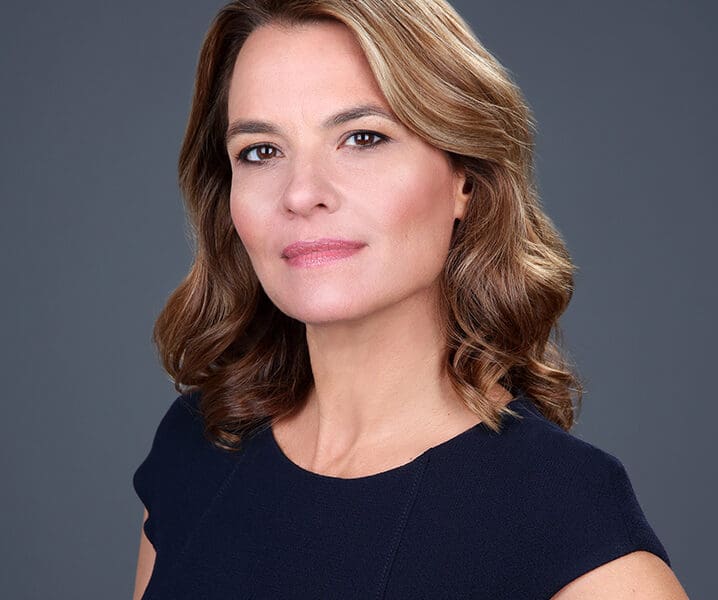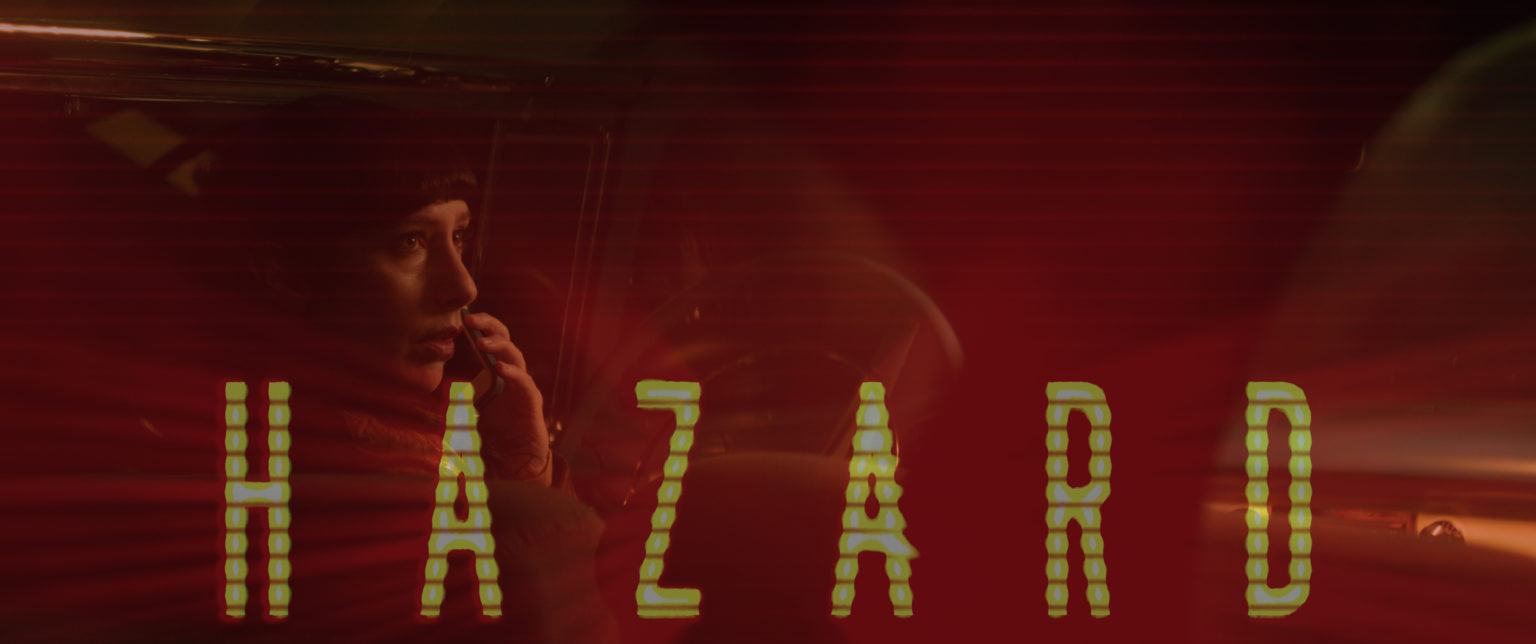
Filmmaker Gairo Cuevas talks ‘Hazard’
Gairo Cuevas’ love for visceral storytelling started around eight years old when his parents allowed him to watch Carrie on TV one night. The movie scared him so much and kept him up all night. His parents learned their lesson, and steered him away from the scary stuff. Cuevas was a shy kid, so watching movies and shows without him having to say anything was great for him.
It wasn’t until high school when he started writing and directing his own short films that he realized he had things to say about family, friendship, and love.
Since then, he’s graduated from San Francisco State with a bachelor’s degree in cinema, worked in the creative services department at The CW for a few years as an editor/cinematographer on several promotional videos, and for the past four years has been an editor/cinematographer at Pixar Animation Studios helping with their behind-the-scenes videos.
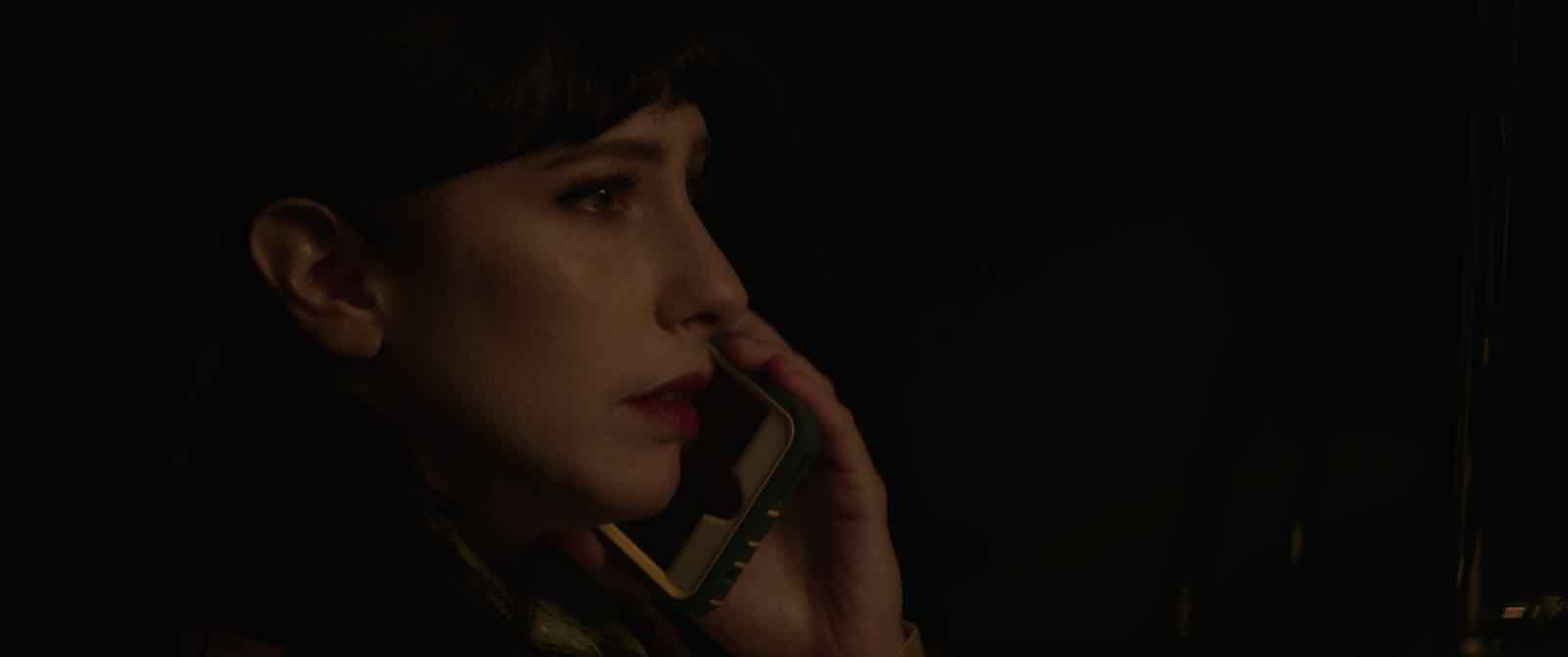
During all of these years, he wrote and directed various short films, web-series, and music videos on the side. Projects like Honest, where Cuevas made a mundane conversation between two friends feel like the biggest issue in the world, or Small Town Soundtrack, a show focused on memories tied to music.
But Cuevas’ latest project, Hazard, goes back to his horror roots. The short film focuses on a young woman stuck in the middle of nowhere when her car breaks down. SlashFilm, First Showing, Horror Buzz, and Horror News have all sung Cuevas’ praises for bringing back old-school horror through tension and dark sets. We got a chance to speak with Cuevas about his past and what led to Hazard.
Tell us about your history as a filmmaker. How did you start your journey?
I think my “filmmaking” journey started in high school when I enrolled in a production class senior year. Though, my love for films started in my pre-teen years when I had a babysitter (Javier) who had a vast movie collection. Javier introduced me to Army of Darkness, Speed, and so many other films that consumed my free time. My parents couldn’t afford to buy me a camera, but that high school class had everything I needed to make short films. I even learned linear editing, which was a hassle, but tons of fun.
As the years moved me along into junior college, college, and grad school, my love of filmmaking just kept growing and pushing me towards the filmmaking lifestyle. Currently, I work at Pixar helping with the making-of videos while I direct short films on the side. I don’t really see myself as a filmmaker, but more as a wannabe filmmaker.

Who are your current influences?
Richard Linklater has never stopped being an influence. I mean, Slacker and Dazed and Confused are such indie classics. The way he’s able to take what might be perceived as mundane, and make it entertaining, well, it just fascinates me to no end. Linklater is able to take those everyday little moments, and create monumental spectacles out of them.
Even his first movie, It’s Impossible to Learn to Plow by Reading Books, is this minimalist film about someone just experiencing life without any type of climax. Most people would probably skip watching that movie, but I could watch it on repeat all day. He’s obviously gone on to make other wonderful films, like Boyhood and Everybody Wants Some, just to name a few.
Greta Gerwig has always been an astonishing actress, but it’s been such a treat to see her flex her creativity as a director. Lady Bird is such a beautiful film about growing up, and I think Gerwig was able to place her own special personal spin on it, which made the film unique and fresh.
Bo Burnham’s Eight Grade captured middle school anxiety perfectly, and reminded me so much about my awkward 7th and 8th grade years. Of course, I can’t leave out Jordan Peele. He has elevated horror to a whole new level, and raised the bar for all of us. Peele is a master storyteller.
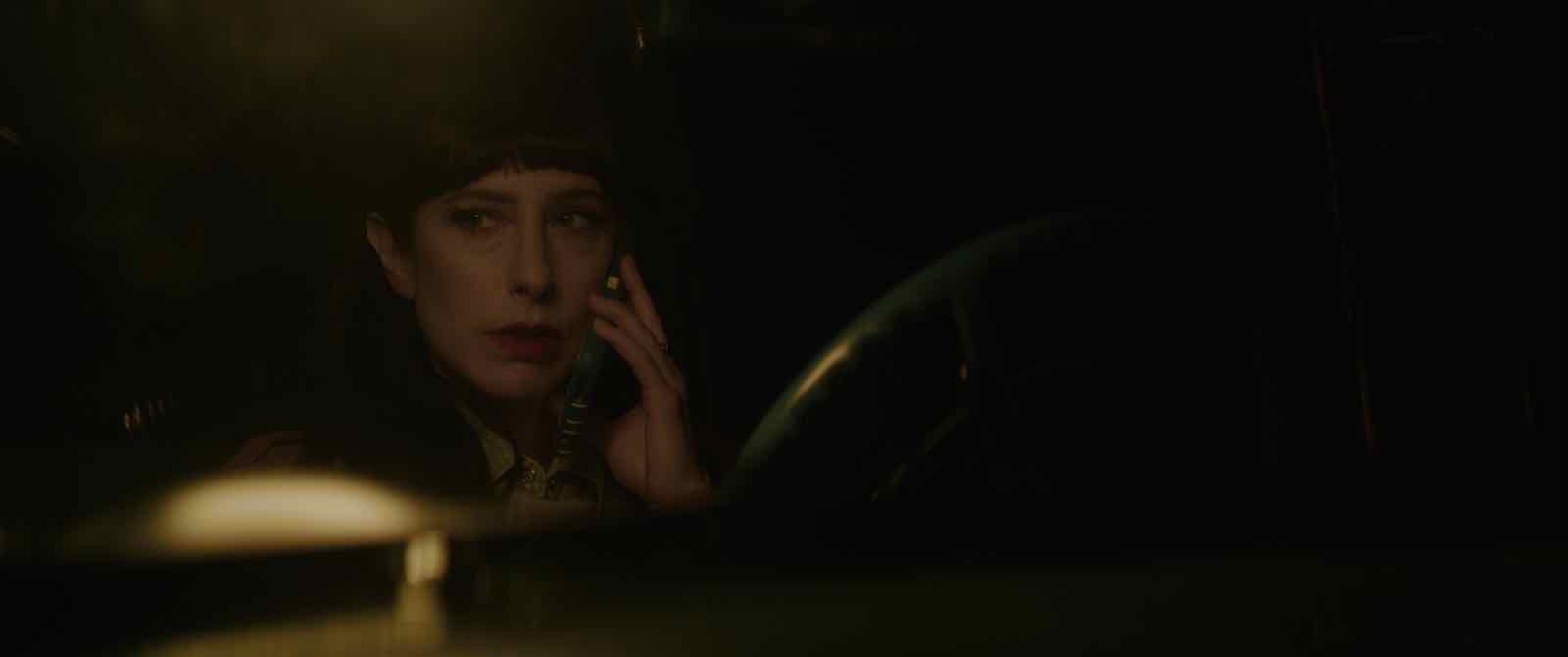
What five TV shows do you think everyone should watch this year?
My current top 5 shows people should watch are as follows:
- High Fidelity – The whole cast talks about love and loss in entertaining and relatable ways. Zoe Kravitz is the Rob we didn’t know we needed.
- Watchmen – I can’t even explain. It’s just a show that needs to be viewed.
- The Marvelous Mrs. Maisel – The storyline is captivating, the dialogue is sharp, and the costume design sucks you right into the period.
- Curb Your Enthusiasm – Larry David is the person who says what we all wish we could say, and since we have manners, it’s fun to watch a show that allows us to secretly vent right alongside Larry. It’s a very therapeutic show.
- Chilling Adventures of Sabrina – This is just a fun horror show about a half-witch, half-mortal who is trying to have a normal life as she tries to vanquish the evil surrounding her. Somehow I can relate.
Cat or dog?
Dog. Nothing against cats.

What was the one movie you saw that made you want to go into film?
Clerks was hands down that one movie that made me think that maybe I could direct film projects. Seeing characters in Clerks standing around and talking within a static frame reminded me so much about my life. All I ever did was stand around and talk with my friends.
We talked at school, talked around town, and talked at home. How hard could it be, right? I learned later in life that there was more to filmmaking than simply hitting record on a camera secured to a tripod; however, Clerks was the film that ignited my filmmaking passion.
How was working on Hazard? What did you learn from the experience?
Hazard was such a fun film to make. Everybody in front of and behind the camera was extremely supportive and enthusiastic about the project. They made the movie such a pleasurable and memorable moment in my life. A few years ago I wrote and directed a short film called Escape, which I shot, edited, and color corrected myself. With Hazard, I had to rely more on my voice in communicating what I had in mind so that others could do their job.
With Escape, I could simply set the camera myself to get the shot I had in mind. With Hazard I had to communicate with Marlon (DP) what I had in mind, and then he would go and set the camera up (even going beyond what I had in mind). That happened a lot with editing, sound, and color, too.
I relied more on collaborating with others, and relying on them to execute their duties on the film, which they did magnificently. It was a nice feeling to have people on the team who could concentrate on what they do best, rather than me trying to do everything poorly. Hazard would not exist without this astonishing cast and crew.
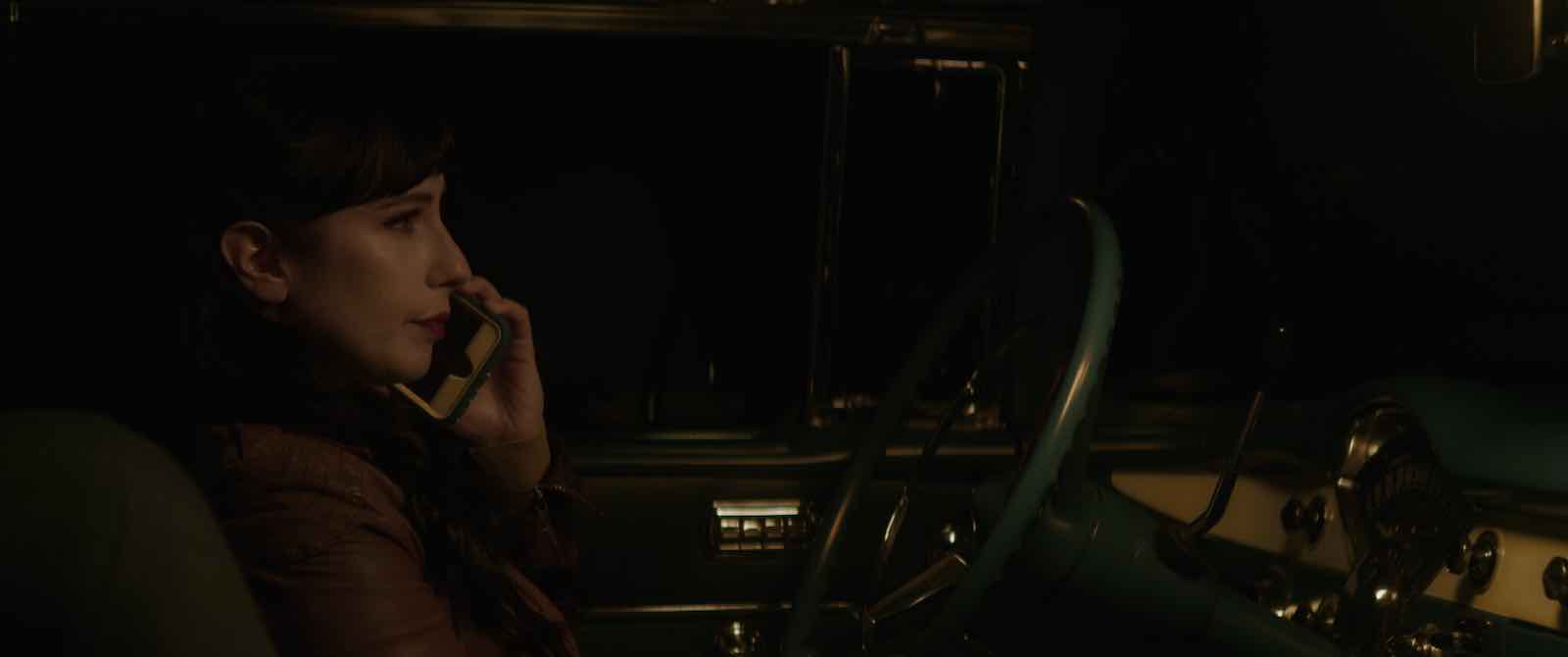
Tell us about your career before you found film.
I’ve kind of always had jobs that put my film degree to good use. After I graduated college, I worked at The CW in San Francisco in the promo department shooting and editing little videos promoting the station. After The CW, I worked at a brand and design strategy firm in San Francisco where I shot and edited focus group videos.
I was there for about two years, and then in 2015, I started working at Pixar as a cinematographer/editor for all the making-of content. I am still at Pixar, which is pretty freaking awesome.
Where did the concept come from for Hazard?
The idea of Hazard came to me when I was walking my dogs super early one morning before the sun had a chance to rise, and suddenly a parked old white faded van quickly flashed its lights on then off. It was a super creepy moment made even spookier by the fact that nobody was inside the vehicle. I chalked it up to faulty wiring, and just kept walking. As we made our way home, and I looked beyond the street lamps, at some point the road blended into obscurity.
I thought about how scary it would be if my car broke down in complete darkness, and all I had were the lights of my car to make me feel a little safer. Another striking aspect was just how quiet everything was around us. I get that it was early, so lots of people were still asleep, but I couldn’t even hear crickets.
It’s one thing to not see through the darkness, but to also not hear much while surrounded by darkness, well it just didn’t seem natural. We walked back home super fast. Super, super fast.
What music inspires you to create?
I think music inspires me best when it happens to match whatever emotional state I’m in when working on a project. For Hazard, I listened to a lot of scary music when I was writing the script.
Talk us through your creative process.
I try to be very structured and focused. For writing, when I think of an idea (which can happen when I’m walking with my dogs, hanging out with my wife, driving around town, etc), I’ll start with a sentence.
From there I’ll expand the idea into a paragraph. Then I’ll aim to write the whole story from start to finish into one page. An outline will emerge from that one page where I write out one sentence bullet points for each scene. I’ll then try to write a page of description for every scene, which turns out to be a lot of writing.
Hazard was short because it’s essentially just one scene. A while ago I wrote a feature-length script that started from a very long treatment where I wrote ½ to 1 page description for each scene. Once I have a solid treatment that has no dialogue, that’s when I start to write the script. I like starting with outlines and treatments because it allows me to write as much as I want without feeling limited early on to the confines of a script’s structure.
What tips do you have for new filmmakers?
Not sure if what I have to say is worth absorbing. I think it’s pretty simple though, If you want to be a writer, then just write a lot of stuff. For some of you that might not be easy when you are working a job you hate that sucks your writing time, but you need it to pay the bills (we’ve all been there). It’s up to you on figuring out how to carve time to focus on your craft, and you will figure it out because your passion won’t stop pestering you.
That being said, don’t let ambition blind you from enjoying life itself. Don’t let just one thing define you. There is something meaningful about waking up in the morning staring at the ceiling of your room, even if it means waking up to work a job you might not like. Don’t take life itself for granted. Sorry if that was sappy.
What part of filmmaking do you geek out about the most?
Directing is my favorite part of filmmaking. I love running dialogue with actors, deciding on angles with the cinematographer, building tension with editors, figuring out how to make the world come alive with sound folks, and figuring out how to best make audiences feel emotions with the composers.
As a director, you get to see every aspect of filmmaking while the film makes its way to the finish line. It’s inspiring to see how every department uses their talents to bring the movie to life. Filmmaking is such a remarkable reminder of what teamwork can accomplish.
You’re very hands-on with your projects. How hard is it wearing all the hats?
When I was in college I directed a 30 minute horror movie titled Wallflower, which took several years to finish. One of the reasons that movie took a while was because I had a big cast/crew, and shooting would be canceled if someone couldn’t make it. That kept happening a lot, which was understandable because nobody was getting paid to make this movie. However, after I finally finished Wallflower, I wanted to direct projects where I didn’t have to rely on so many people.
I wrote projects that I knew wouldn’t be too hard to produce, and that way I could actually direct and finish a short film in a good amount of time. I worked that way for a long time that it became pretty easy to write, direct, shoot, edit, and color correct a project because I always wrote shorts that were within my limitations. Hazard is the first project since Wallflower where I relied on more people to help finish the movie because I don’t want to be the type of director who also does everything else (not if I don’t have to).
I want to collaborate with more people, but only if they want to. I don’t ever want to force someone to work on a project they don’t want to work on.
If you could only watch one movie for the rest of your life, what would it be?
Dazed and Confused. I love the writing, acting, camera angles, editing, sound work, and music. Everything. The directing is just spot on. I can relate to all the characters, even if I haven’t experienced life the way they have.
Somehow the movie convinced me that these characters were real people. Like I could run into them once I stepped out of my house. That dialogue is infectious. “You just gotta keep livin’, man. L-I-V-I-N.”
What’s your next project?
I am currently directing three projects that I have written, and the first is a feature dramedy that’s currently in post-production about a former disgruntled middle school teacher who has one day to look for her roommate’s missing dog, or else she will be kicked out of her apartment. I plan to submit to film festivals later this year for a 2021 run. Fingers crossed.
I also have a short film in post-production about two high schoolers debating gun control as they walk home, and I hope to release the film online in September of this year (2020). Lastly, I am in pre-production for a short animated film. Nick Balian is currently designing the characters and props, while Koko Chou is in the process of storyboarding the script.
Have you worked with mentors in the past? How would you recommend people go about finding them?
I’ve been lucky in that I’ve always found the people whom I have worked alongside as mentors. First, it started with my parents. My dad would take me on his weekend landscaping jobs, which made me realize the value of hard work. My mom, on top of having a full-time job, would also task us with keeping up with our chores at home.
My mom taught me the value of pride no matter our social class (lower middle class). During high school, I worked at a wine fulfillment company (packed a lot of wine bottles into boxes) where Steve Gant, Rick Gant, and Casey Clark helped me through my shy phase. They were my first real bosses, and even though the job had nothing to do with filmmaking, I learned how to find my confidence under their guidance. When I worked at The CW in San Francisco as an associate producer, Rob Genolio (creative director & brand manager) and Rafael Figueroa (producer/editor), taught me a lot about shooting, writing, and editing.
That was my first real job in the media business, and though I made a lot of mistakes, they were always game to help me without making me feel ashamed. Currently, I am working at Pixar as an editor/cinematographer, and I view everyone there as a mentor. I feel like I am alongside folks at the top of their game, and I’m lucky to be nearby to soak up all their wisdom.
What has been your biggest failure?
This might sound weird, but I think my biggest failure was not realizing quickly enough to just try and experience the passage of time. I’ve directed lots of short projects throughout my life, and for the longest time, all I did was stress from one project to the next.
Why did I do that? It wasn’t as though those projects changed me fundamentally. What all those projects did was just take me away from family and friends. Life isn’t just about one thing, it’s about all the things. Eventually, I found a balance.
What’s your filmmaking mission? Name the most important thing you want viewers to experience when watching your movies.
I am not the kind of person who is good at talking about how I feel, so filmmaking is the best way I can express emotions without having to talk about what I am going through over and over again. Even though growing up I had wonderful hardworking parents, a swell brother, and a fun group of friends at school, I still always felt alone.
Then when I started watching movies, that part of me that felt alone didn’t feel alone anymore. I hope that when people watch movies I direct, besides hopefully feeling entertained, I also hope they feel like they are not alone. I want folks to know that whatever feelings they are going through, I feel those feelings, too. Whether it be the loss of a dog, a break-up, or simply a good scare, movies are a wonderful way to feel a sense of belonging within the world.
What has been your biggest success?
Appreciating life which fuels the stories I am trying to tell cinematically. A couple years ago I lost my dog, Buddy, to cancer. I was devastated, and couldn’t talk to anybody about it. After a few weeks, I started to write a short script about someone talking about losing their dog. I think that was the first time where I truly poured my heart and soul into a project, but it was also hard because the death of a pet is never fun to experience. However, writing the script reminded me of all the good times I had with Buddy.
Suddenly, writing about how I felt really helped me release all the anger and sadness that was bottling up within me. All that remained were the good memories I had with him. I still get sad from time to time because I miss his long floppy ears and adorable howling, but the good memories outweigh the bad times. Eventually I directed the script, which you can see here if you are interested. Ever since then I have taken the time to truly enjoy and absorb all the moments of my life, and from there, something always motivates me to write. I mean, if you’re going to make movies about life, it only makes sense to live your life, right?
Can we expect to see any episodic television from you anytime soon?
I am currently in the early development stages of writing episodic treatments for an anthology horror series called The Spooky Society, which is akin to Are You Afraid of the Dark. Who knows if I’ll actually ever get a chance to bring the show to life, but it’s been fun fleshing out ideas between work and other projects.
Other than that, I would love to be able to direct episodes of shows I love (High Fidelity, Superstore, Chilling Adventures of Sabrina, The Mandalorian, Locke & Key – to name a few). However, I don’t see that ever happening since there are so many talented directors out there that are rocking it.
What’s your five-year plan?
I stopped making plans a long time ago, and kind of just go with the flow of time. If an idea comes to mind, I’ll write it down and add to it whenever time permits. If I wake up healthy, well, then that’s good enough for me.
What indie filmmakers should be on our radar?
Erica Milsom directed a heartbreaking short film titled So Much Yellow, which is about a young girl and her brother who has Down syndrome. She recently directed a short animated short film titled Loop, which is currently playing on Disney+. Tracy Kleeman has a super spooky short called Fear Filter. Make sure you watch it with the lights on.
What’s your favorite film of all time, and what did you learn from it?
I wish I knew. My favorite film always changes. When I was younger it was Army of Darkness because I enjoyed the mix of humor and horror. During college, it was The Shawshank Redemption, which had fantastic narration. Lately, it’s been a tie between Slacker and Dazed and Confused, which led to me finally writing/directing my own feature film.
The way Slacker and Dazed and Confused uses characters to push the story forward has always inspired me. They are the type of films rarely made now, and I wish more of those films existed. As you can tell, it’s hard for me to focus on just one movie.
Who would compose the soundtrack of your life?
Mouzhan Yousefi and Sylvain Carton are fantastic musicians. They score all of the films I direct, so it only makes sense they would compose the soundtrack of my life.






